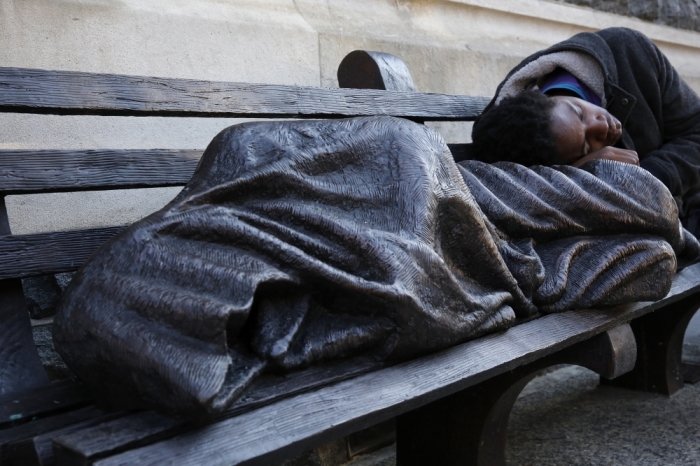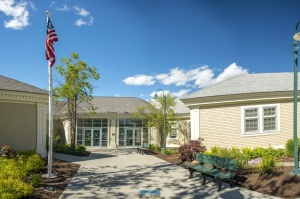Cities Declare 'State of Emergency' Amid Homeless Crisis

While HUD states homelessness is down, this year Seattle, Los Angeles, and Portland have each declared a state of emergency on a problem they believe is a growing epidemic. Los Angeles' Skid Row is one of the most notorious and heavily populated areas in the U.S. of homeless inhabitants.
Seattle is reported to have a 40 percent jump between 2014 and 2015. According to the New York Post, 60 percent of residents of New York City believe they are seeing an increase in homelessness in the city.
Seattle's County Executive Dow Constantine said this month, "Homelessness is not a natural disaster. It is a human-made disaster."
According to Fox News, Hawaii has the largest homeless population per capita compared to any state in the union. In total, California leads the nation, with 21 percent of the homeless population. California and New York also saw the largest increases of those classified as homeless this year.
During an interview with CP, Peter Johnson, an external relations officer with the Acton Institute, spoke of the importance the faith community provides on the topic.
"Homelessness is a complex problem because people are complex. From a Judeo-Christian perspective, helping the homeless is about much more than just providing for one's bodily needs," declared Johnson. "Sure, it is important to provide food, shelter, and clothing for the homeless — but, as a Christian, we want to further bless them with relationships and enduring support of a faith community.
"Giving to charity is similarly complex because people are complex. From a Judeo-Christian perspective, the homeless are people endowed by the Creator with the same dignity as every other human being," Johnson added. "When we invest our charitable dollars in organizations that address not just the physical needs of homeless populations, but also the spiritual, mental, psychological needs, we affirm their dignity.
Johnson noted that the Salvation Army and Catholic Social Services "are oftentimes on the frontlines of the battle against homelessness." He believes the faith community is often best equipped to tackle issues of substance abuse and mental illness that often pervades much of the homeless in America. Johnson said the battle is just as much spiritual for many as it is physical. They know that the challenges facing the homeless are oftentimes as much spiritual as they are mental or physical.
"Jewish and Christian religious leaders encourage us to treat the homeless as if they have the same God-given dignity as every other human being on Earth. We can affirm this dignity by supporting organizations that serve homeless populations holistically," he noted.
Kate Carver, executive director of the Dumas Wesley Community Center in Mobile, Alabama, echoed some of the same principles expressed by Johnson.
"We really believe firmly that the reason we have such a great success rate at our facility is because we serve the whole individual."
Carver spoke about the importance of volunteer work and offered advice for those looking to get involved in a ministry that addresses issues of poverty and homelessness.
"Individuals ask how they can get involved and here at Dumas, we draw from the strengths of volunteers and get them involved in where they can best help people.
"We want to draw on their strengths and share those with the residences. For example, we have a bank executive who comes in and helps on financial matters and budgeting."
Carver spoke about other volunteers who helped with meal planning and budgeting for food.
"It's important, because so many people think fast food is cheaper but we have a volunteer expert who can jump in and help those in need see that it is not necessarily cheaper and there are many other options. She emphasizes too that having a sit down meal is important for the function and health of the family."
Carver suggested to CP that if you want to help those in need it is often best to find out what the need is for local individual non-profits and ministries that work with the homeless.




























